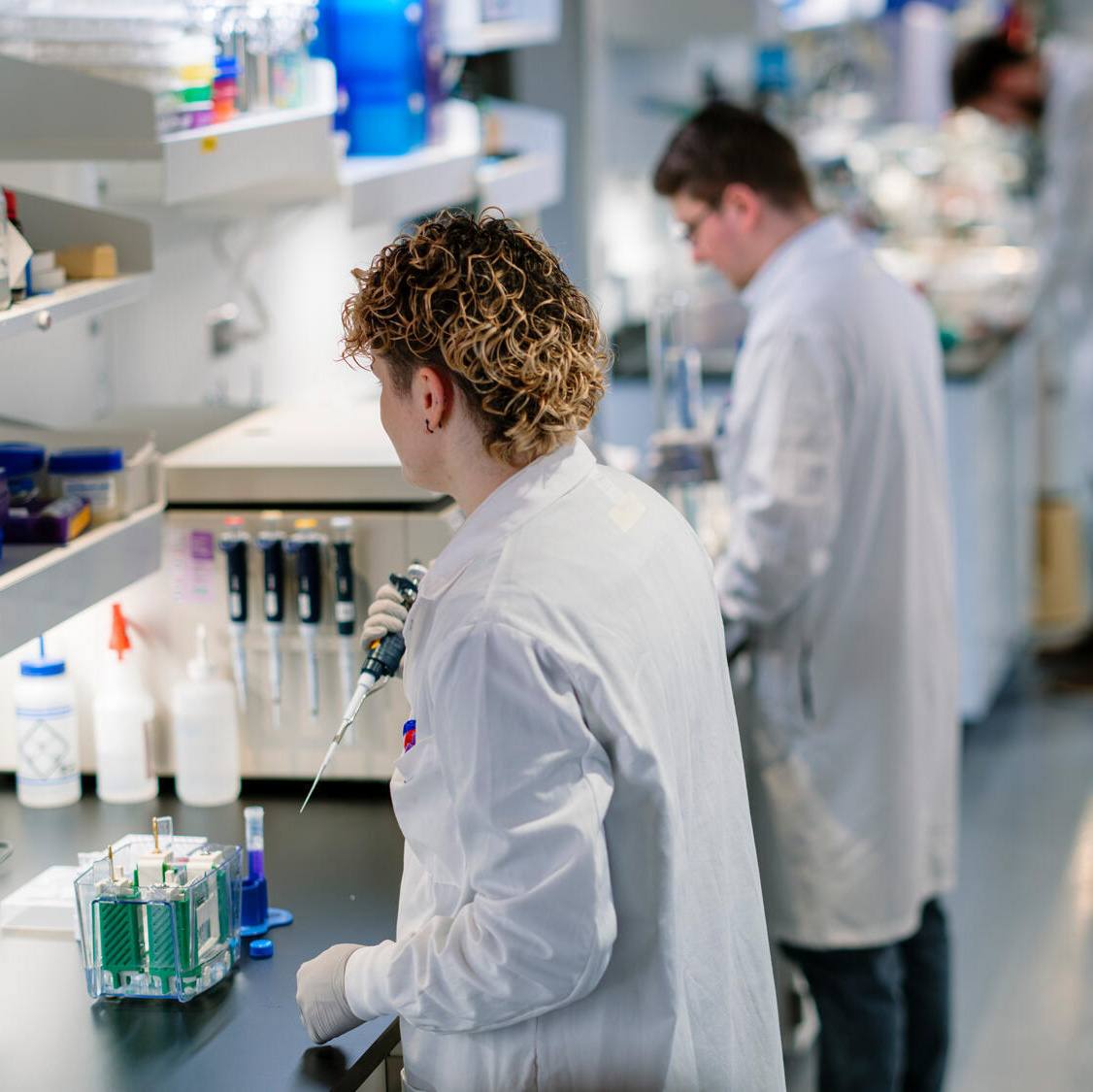-
Research
Advancing understanding of CAR-T cell therapy for cancer
This article on a Mayo Clinic Regenerative Sciences Training Program student is taken from a series of articles that feature the work of graduate students as they near the end of their Ph.D. training at Mayo Clinic Graduate School of Biomedical Sciences. Students talk about their research journeys, lessons they learned along the way and hopes for the future.
Claudia Manriquez Roman
Hometown: Ciudad Juarez, Mexico
Graduate track: Virology and Gene Therapy/Regenerative Sciences
Research mentor: Saad Kenderian, M.B., Ch.B., Mayo Clinic in Rochester
What were the biomedical issues you addressed in your research, and what did your studies find?
My research focused on the development and optimization of a cellular treatment for cancer and autoimmune diseases, specifically the immunotherapy known as chimeric antigen receptor-T cell therapy, or CAR-T cell therapy. The underlying principle of CAR-T cell therapy involves modifying a patient’s own immune system so that the T cells express proteins that bind only to cancer cells. The engineered T cells then kill off the cancer cells. As a treatment that can be individualized for patients, CAR-T cell therapy currently is being used primarily for blood cancers like leukemias and lymphomas.
The focus of my research was understanding the activation of CAR-T cells when they encounter tumor cells. I also wanted to understand why CAR-T cells that are overactivated in some cases undergo the process of cell death, known as apoptosis. I addressed the question: "How can we modulate the CAR-T cell apoptotic machinery to reduce CAR-T cell death while enhancing the cells' tumor-killing capabilities?"
My studies found that reducing the presence of a specific cytokine, an inflammatory molecule that’s present in patients who experience CAR-T cell-associated toxicities, resulted in CAR-T cells that are less prone to apoptosis. I found similar results depleting a specific receptor involved in the apoptotic pathway. I also found tumor cells pre-treated with a monoclonal antibody, followed by CAR-T cell treatment, led to the reduction of CAR-T cell apoptosis while enhancing the anti-tumor activity. My thesis project opened the door to new approaches that can be explored to improve the therapeutic efficacy of CAR-T cells, not only in blood cancers but in solid tumors as well.
How did the research environment at Mayo Clinic contribute to the success of your projects?
The environment at Mayo really promotes asking questions. In my research, I used a variety of approaches, including lentiviral technology, flow cytometry experiments and gene editing tools like CRISPR/Cas9. One aspect I believe is so unique to Mayo Clinic is the ability to establish so many collaborations and how common interests between scientists can shape an amazing research investigation. I had wonderful mentors who were looking out for me and my career and who always reminded me to never stop fighting for my dreams.
Most of all, being in a translational lab has given me the opportunity to meet patients at Mayo Clinic who have received CAR-T cell therapy. Seeing that what I’m doing in the lab connects to helping patients has been one of the most rewarding feelings in my career so far.
What’s next?
As an international student, I consider myself extremely lucky to have had the opportunity to pursue my Ph.D. training at Mayo Clinic. I’m deeply excited that my next role will be as a scientist and engineer in the Center for Regenerative Biotherapeutics at Mayo Clinic, with the goal of fully translating our CAR-T cell products into therapies that can be tested in clinical trials to become cures for patients.
Other 'Phase Transitions' student research stories
Read more stories about Mayo students who are nearing the end of their Ph.D. training:
- Students describe the path to a Ph.D.
- A student's approach to real-time seizure detection
- Mayo student takes on antibiotic resistance
- A student's community-engaged research on fibroids
- Student optimizes a DNA-based tool to address disease
- Aiming to mitigate Alzheimer's by removing senescent brain cells
View all stories in the "Phase Transitions" series.








